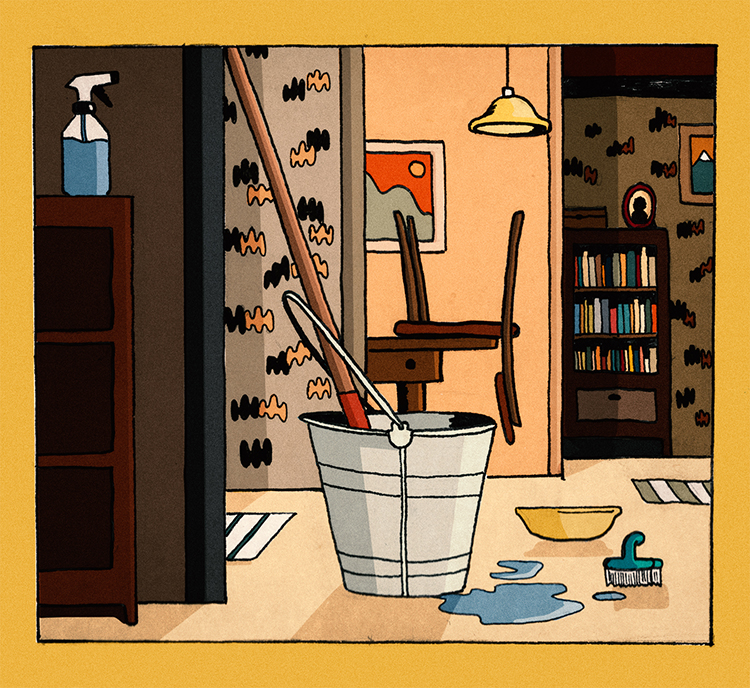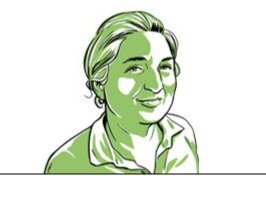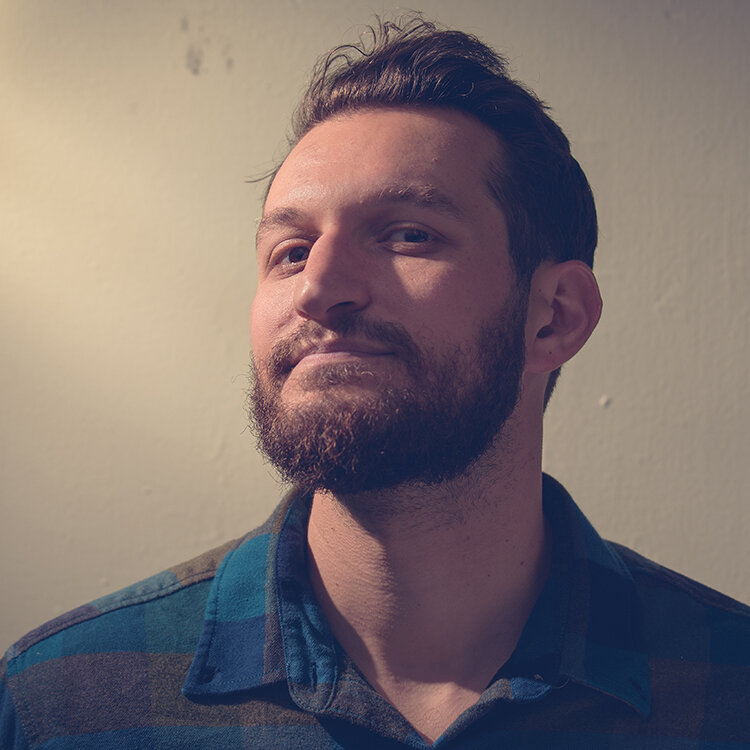It isn’t easy to accept that our dirt and mess are important. Why would we want to? Many of us feel there are bigger, better and more exciting things to do with our lives than to vacuum and dust the house. In actuality, the mess is a window through which we see the deep, unknown world of inner consciousness calling us to engage with life in a very practical way. The dust on the shelves is us—the dead part of us. The death, the dirt, the unsavory aspects of our tangible reality, they don’t need the negative connotations, and addressing them does not have to be a “chore.”
The house carries, sees and holds it all. It is volatile, alive and subject to change just like the people within it. It hears the fights and registers the neglect; it holds the trauma of depression and illness, all the while striving for restoration and wholeness.
We carry this same structure within our consciousness. Our bodies, living yet dying, are the subjects and objects of care: eating well, personal hygiene and overall wellness are undoubtedly important. How is it, then, that we convince ourselves that caring for our homes is boring and trivial?
Our homes are an extension of ourselves and of the present, and it is counterintuitive to long for bigger, better and more exciting lives when we resent interacting with our homes and lives as they are.
There is a tendency to look outside of the present for a sense of larger purpose and importance. Dirty dishes and grimy bathrooms seem pointless and menial when we feel “destined for greatness” somewhere else in the world. But if the present were different, if we were relieved of the drudgery of everyday responsibilities, would we make good on our self-perceived importance or sit right back down in front of the TV? For successful movement out of this existential crisis, we need a paradigm shift.
Unless we are planning to leave the present moment in favor of a different one, the mess, clutter and dust we ignore will become an exponentially larger problem in the future. In lieu of personal action, we might throw money at the problem to make it go away or do the mental gymnastics to convince ourselves that we “like” living in the chaos and grime. To each their own. If we cared for our bodies in the same way, we would have to accept that sickness is the norm and that preventative care is not worth our time.
Good form will carry us through the hardest days and most exhausting evenings. If we can truly accept ourselves where we are, on this journey, in this home, with this job, with these people surrounding us, we embrace the true freedom of interacting with our lives as they are. Although I may wish to be “somewhere else,” I am here now, and not in a future that may never materialize. I have high hopes for what I would like to see for myself and our world, but no expectations. I embrace that life comes with maintenance and work. I also embrace relaxation, restoration and the fruit of the seeds I have planted. In looking at the whole, I respect the trivial.
The future depends on a sustained involvement in life as it is right now.
So, I’ve neglected the basement. I’ve thrown things down there, let it become a place where I hide bad habits. I’ve closed the door to ignore it. What does that say? I know that it is just a basement, so who cares if it’s a mess? But it serves as a reminder that I am not appropriately caring for the spaces that I have right now. I can rationalize that the space is inadequate, too small, that it serves as a multifunctioning space that can’t ever possibly be what I want it to be. Or, I can ignore the wish for a different situation and make the time to deal with my mountain of clutter. The experience doesn’t have to be negative—it is an opportunity for self-reflection and self-determination.
When faced with an uphill climb, the tendency is to look for a way out without addressing the habits that brought the mess in the first place. Press a button and the cleaning fairy will make the dust and clutter go away—is this the dream? How lazy and out of touch with reality! It will be no different in a new space. Poor habits follow us wherever we go.
Examining our everyday behaviors, domestic habits and relationship with our tangible reality is essential for the development of self-knowledge and freedom. There is no cure to be bought, no shortcut to be found and no savior from the truth that our dead skin cells become dust.
Cleaning up after ourselves and the ones we love is worth our time. We can transcend the existential dread of trivial work, set a new bar for domestic gender equality and redefine this central issue for our modern times. As a species, we must evolve by looking at where we are now, seeing the mess, the trash and the grime. We must stop and give thought, weight and importance to the habits we will instill in future generations and the impact this will have on the future of this planet. We shouldn’t let the realities of domesticity deter us from action. We can learn through our existence that we are living, breathing creatures worth taking care of, and act accordingly.




